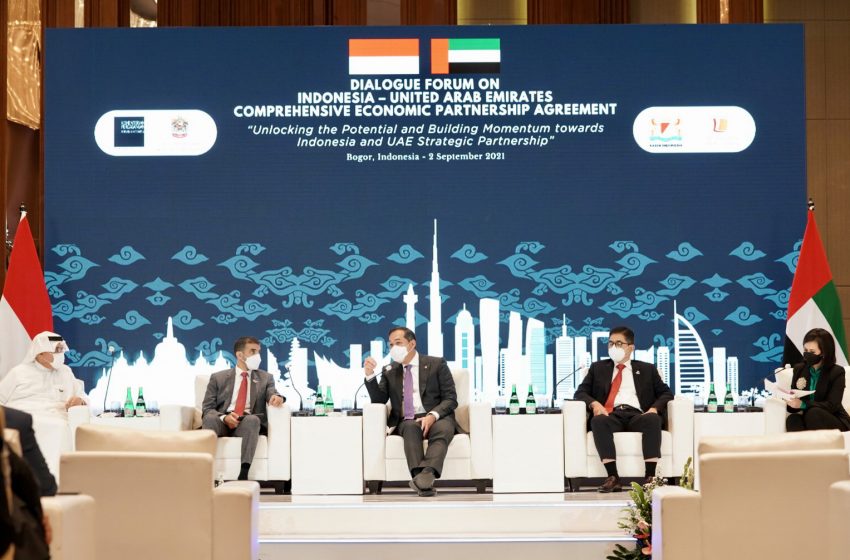UAE, Indonesia launch talks on Comprehensive Economic Partnership Agreement

Dr. Thani bin Ahmed Al Zeyoudi, Minister of State for Foreign Trade, led an official delegation to Bogor for discussions with Indonesia to deepen trade and investment relations. Indonesia is one of eight countries with which the UAE is seeking trading agreements as part of the ‘Projects of the 50’ initiative announced yesterday.
During the official economic mission, Al Zeyoudi and his delegation met . Joko Widodo, President of the Republic of Indonesia, at the Jakarta Presidential Palace. They exchanged their views on a number of regional and global issues and underlined the importance of greater collaboration to enhance sustainable development and accelerate the global economic recovery.
Al Zeyoudi and Muhammad Lutfi, Minister of Trade of the Republic of Indonesia, also jointly established the Indonesia – United Arab Emirates Comprehensive Economic Partnership Agreement (IUAE CEPA). It will enhance trade ties, expand economic and investment opportunities, and mark a new phase of bilateral cooperation.
A high-level delegation representing the federal government and businesses, including the Federal Chambers of Commerce, accompanied Al Zeyoudion the state visit and took part in the IUAE CEPA Business Forum. Discussions were also launched to sign a Memorandum of Understanding between the chambers of commerce of both countries.
“The UAE is paving the way for a more vibrant and competitive knowledge-based economy and continues to be a catalyst for economic growth for our partners around the globe, as our announcement on our trade ambitions as part of our ‘Projects of the 50’ initiative show,” Al Zeyoudi said. “The IUAE CEPA builds upon the UAE’s strong economic relationship with Indonesia and will lay the foundations for an ambitious partnership that creates new opportunities for our businesses, attracts greater investment and talent to the region, and accelerates the global economic recovery.”
Lutfi added: “It is our firm conviction that deepening the economic bonds with the UAE will assist in our goals to develop export markets, provide new horizons for our businesses, and implement best practices in key sectors such as technology, logistics, sustainable energy and food production. The UAE’s plans to leverage trade partnerships to strengthen its future economy and build on its role as a global economic hub are exactly in line with Indonesia’s ambitions to do the same in Asia.”
The UAE’s longstanding bilateral relationship with Indonesia is anchored on close cultural ties and a shared commitment to enabling greater economic development and prosperity between both countries. The total value of the UAE’s non-oil trade with Indonesia in 2020, for example, reached $2 billion and the UAE is aiming to increase this trade value significantly in the coming years through the IUAE CEPA.
Recent announcements including UAE plans to invest $10 billion in the Indonesia Investment Authority in March 2021, the Indonesian government becoming the largest Sukuk issuer on Nasdaq Dubai in May 2019, and the UAE’s Masdar beginning construction on the world’s largest floating solar plant in Indonesia last month further demonstrates the strength of the UAE-Indonesia bilateral relationship. There are also a number of longstanding collaborations in the areas of oil exploration, the halal food industry, green technology, utilities, agriculture and education.
In the last five years, the total value of non-oil trade between Indonesia and the UAE exceeded $11 billion, of which, the UAE’s exports to Indonesia accounted for $1.4 billion. Aluminum and related products generated nearly $600 million, while the value of re-exports from the UAE to Indonesia stood at nearly $1 billion during the same period.
Current estimates indicate that opportunities to increase non-oil trade are promising, with an annual growth potential of $1.6 billion in several sectors, including jewelry, vegetable oil, automobiles and car parts, copper, rubber and aluminum.
WAM

